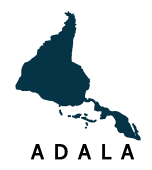Voces alternativas en la medicina babilónica
DOI:
https://doi.org/10.35305/cl.vi20.65Palabras clave:
Medicina babilónica, libro de diagnóstico, brujería, mano (de los dioses, demonios, fantasmas), encantamientos médicosResumen
El enfoque habitual de los escritos médicos babilónicos es asumir un corpus monolítico de datos presentados en recetas y listas de medicamentos o colecciones de síntomas para el pronóstico y el diagnóstico. A pesar del largo período de documentación de la medicina babilónica, no se ha intentado analizar la adquisición de conocimientos médicos acadios como un proceso dinámico, que también necesitaba adaptarse a expectativas cambiantes. El presente artículo examinará la medicina babilónica mientras busca la cacofonía de diferentes voces, terminando con la intrigante pregunta: ¿quién controla la narrativa?
Descargas
Citas
Abusch, Tzvi (2015) The witchcraft series Maqlû. Atlanta: SBL.
Abusch, Tzvi and Schwemer, Daniel (2011) Corpus of Mesopotamian Anti-Witchcraft Rituals. AMD 8/1. Leiden - Boston: Brill.
Attia, Annie and Buisson, Gilles (2012) 'BAM 1 et consorts en transcription', Journal des Médecines Cunéiformes 19: 22-50.
Bacskay, András (2021) “Prescriptions against "Hand-of-Ghost" and fever. An edition of BM 41300”, Archiv für Orientforschung 54: 283-292.
Collins, Timothy (1999) Natural Illness in Babylonian Medical Incantations (Univ. of Chicago PhD).
Drower, E. S. (1949) = AM.
van der Eijk, Philip (2000) Diocles of Carystus. Leiden: Brill.
van der Eijk, Philip (2018) “Medicine in Early and Classical Greece”, in: Jones, Alexander and Taub, Liba, The Cambridge History of Science Vol. 1, Ancient Science. Cambridge: Cambridge University Press, pp. 293-315.
Finkel, Irving (2018) “On Three Tablet Inventories”, in: Steinert, Ulrike (ed.) (2018) Assyrian and Babylonian Scholarly Text Catalogues. Berlin - Boston: de Gruyter, pp. 25-41
French, Roger (2003) Medicine before science: the business of medicine from the Middle Ages to the Enlightenment. Cambridge: Cambridge University Press.
Geller, Markham (2000) “Fragments of magic, medicine, and mythology from Nimrud”, Bulletin of the School of Oriental and African Studies 63: 331-339.
Geller, Markham (2007) Canonical Utukkū Lemnūtu incantations. Helsinki: Neo-Assyrian Text Corpus Project.
Geller, Markham (2014) Melothesia in Babylonia. Berlin - Boston: de Gruyter.
Geller, Markham (2016) “Review of N. Heeßel, Divinatorische Texte II: Opferschau-Omina”, Archiv für Orientforschung 53: 201-208
Geller, Markham (2018) “A Babylonian Hippocrates”, in: Steinert, Ulrike (ed.), Assyrian and Babylonian Scholarly Text Catalogues. Berlin - Boston: de Gruyter, pp. 42-54.
Geller, Markham (2021) “An Apothecary's Handbook”, Journal des Médecines Cunéiformes 35: 1-33.
Geller, Markham and Panayotov, Strahil (2018) Mesopotamian Eye Disease Texts: The Nineveh Treatise. Babylonisch-assyrische Medizin, Vol. 8. Berlin: de Gruyter.
George, Andrew (1991) “Babylonian Tablets from the Folios of Sydney Smith, Part Two: Prognostic and Diagnostic Omens, Tablet I”, Revue d'assyriologie et d'archéologie orientale 85 (2): 137-163.
Goltz, Dietlinde (1974) Studien zur altorientalischen und greichischen Heilkunde: Therapie - Arzneibereitung – Rezeptstruktur. Wiesbaden: Steiner Verlag.
Heeßel, Nils (2000) Babylonisch-assyrische Diagnostik. Münster: Ugarit Verlag.
Heeßel, Nils (2018) “Identifying Divine Agency: The Hands of the Gods in Context”, in: van Buylaere, Greta; Luukko, Mikko; Schwemer, Daniel; Mertens-Wagschal, Avigail (eds.) Sources of Evil. Leiden - Boston: Brill, pp. 135-149.
Herrero, Pablo (1984) La Thérapeutique mésopotamienne. Paris: Editions Recherche sur les civilisations.
Jouanna, Jacques (1999) Hippocrates (transl. M. B. DeBevoise). Baltimore - London: Johns Hopkins.
Kwasman, Theodore (2006) “The Demon of the Roof”, in: Finkel, Irving and Geller, Markham (eds.) Disease in Babylonia. Leiden-Boston: Brill, pp. 160-186.
Mayer, Werner (1993) 'Das Ritual "BMS" 12 mit dem Gebet "Marduk 5", Orientalia NS 62: 313-337.
Nutton, Vivian (2018) “Hellenistic and Roman medicine”, in: Jones, Alexander and Taub, Liba (eds.) The Cambridge History of Science. Vol. 1, Ancient Science. Cambridge: Cambridge University Press, pp. 316-344.
Panayotov, Strahil (2018) “Notes on the Assur Medical Catalogue with Comparison to the Nineveh Medical Encyclopaedia”, in: Steinert, Ulrike (ed.) Assyrian and Babylonian Scholarly Text Catalogues. Berlin / Boston: de Gruyter, pp. 89-120.
Rochberg, Francesca (2009) “Conditionals, inference, and possibility in ancient Mesopotamian science”, Science in Context 22: 5-25.
Rumor, Maddalena (2021) "Babylonian Astro-medicine, Quadruplicities and Pliny the Elder”, Zeitschrift für Assyriologie 111(1): 47–76.
Schwemer, Daniel (2010) „Altbabylonische therapeutische Texte“, in: Schwemer, Daniel and Janowski, Bernd (eds.)Texte zur Heilkunde, TUAT NF5. Gutesloh: Verlaghaus, pp. 35-38.
Schwemer, Daniel (2019) "Mesopotamia", in: Frankfurter, David (ed.) Guide to the study of ancient magic. Leiden - Boston: Brill, pp. 36-64.
Scurlock, JoAnn (2006) Magico-medical means of treating ghost-induced illnesses in ancient Mesopotamia. Leiden - Boston: Brill - Styx.
Scurlock, JoAnn (2014) Sourcebook for Ancient Mesopotamian Medicine. Atlanta: SBL.
von Staden, Heinrich (1989) Herophilus: the art of medicine in early Alexandria. Cambridge: Cambridge University Press.
Steinert, Ulrike (ed.) (2018) Assyrian and Babylonian Scholarly Text Catalogues. Berlin - Boston: de Gruyter.
Steinert, Ulrike (2021) 'Sensory Experience in Ancient Mesopotamian Medicine', in: Thomason, Allison and Neumann, Kiersten (eds.) The Routledge Handbook of the Senses in the Ancient Near East. London: Routledge, pp. 489–516.
Stol, Marten (1989) “Old Babylonian Ophthalmology”, Akkadica, Supplement 6 (Fs. Finet): 163-166.
Stol, Marten (1993) Epilepsy in Babylonia. Groningen: Styx.
Tecusan, Manuela (2004) The fragments of the Methodists: Methodism outside Soranus. Leiden - Boston: Brill.
Temkin, Owsei (1953) Soranus' Gynecology. Baltimore: Johns Hopkins.
Abbreviations
AM = Asfar Malwaša (Book of the Zodiac)
AMD = Ancient Magic and Divination (Brill)
BAM = Babylonisch-Assyrische Medizin (de Gruyter)
BMS = Babylonian Magic and Sorcery (L. W. King)
STT = The Sultantepe Tablets, published by Gurney, Finkelstein, and Hulin
TUAT = Texte aus der Umwelt des Alten Testaments (Gutersloher Verlag)
Descargas
Publicado
Cómo citar
Número
Sección
Licencia

Esta obra está bajo una licencia internacional Creative Commons Atribución-NoComercial-CompartirIgual 4.0.

















 Centro de Estudios sobre Diversidad Cultural
Centro de Estudios sobre Diversidad Cultural

